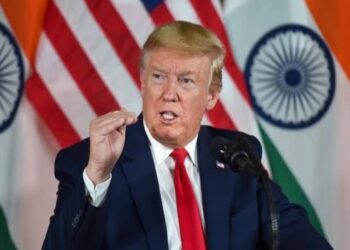As the assembly elections in Jammu and Kashmir are coming closer, the political game in the state has become more interesting. Amidst the preparations for the assembly elections, a new controversy has emerged regarding ‘halal’ and ‘haram’. These Islamic words are quite famous in general, where halal means something which is necessary, while haram means something which is forbidden. Currently, both the words have also become prevalent in the politics of Jammu and Kashmir.
Recently, former Jammu and Kashmir Chief Minister and People’s Democratic Party (PDP) President Mehbooba Mufti alleged that the National Conference (NC) started the politics of ‘halal’ and ‘haram’. Mehbooba Mufti says that the NC considered elections ‘halal’ when it was in power and made it ‘haram’ when it was out of power.
Mehbooba Mufti said, “I am surprised that NC considers Jammu and Kashmir as its empire. It was they who started the politics of halal/haram. When Sheikh Mohammad Abdullah (NC founder and Omar Abdullah’s grandfather) was made the chief administrative officer of Jammu and Kashmir in 1947, the elections were halal. When he became the Prime Minister, the elections became halal again. When he was removed, the elections became haram for 22 years and he kept talking about referendum. And when he became the Chief Minister in 1975, the elections became halal again.”
Mehbooba Mufti also said that electoral rigging was also done in the 1987 elections, which ended the electoral rights of the Muslim United Front (MUF). Jamaat-e-Islami (JEI) was the main party in the elections at that time and the NC was also accused of stopping its electoral rights. Now Jamaat-e-Islami has decided to take part in the assembly elections after a five-year ban. Former Chief Minister and NC Vice President Omar Abdullah recently welcomed the decision of the Jamaat to contest the elections, but he criticized their old stand of boycotting the elections. He said, “Earlier it was said that elections are haram. Now it is being said that it is better to participate in the elections.”
Meanwhile, former Srinagar Municipal Corporation Mayor Julaneed Azim Mattu has questioned the politics of both NC and PDP. Mattu said, “The traditional mainstream is full of contradictions. In other states contradictions have political consequences, but in Kashmir they are at the cost of life and stability.” Amidst this controversy, the use of the terminology ‘halal’ and ‘haram’ among political parties in Jammu and Kashmir is indicating a new direction and complexity in electoral politics. It remains to be seen how these controversies affect the upcoming elections.









